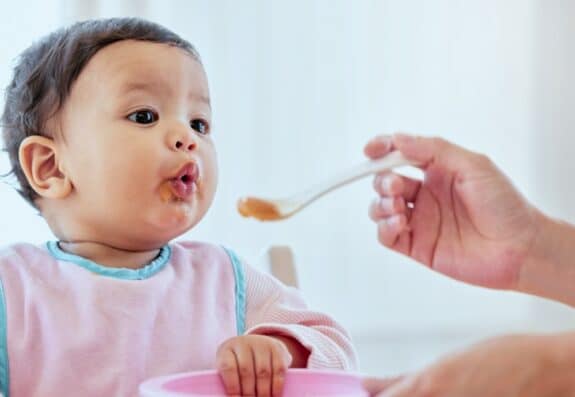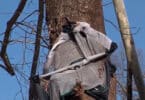Several years ago, an analysis determined that many baby foods contained dangerous heavy metals. Unfortunately, it seems little has changed. Consumer Reports indicated that many of the popular brands still have cadmium, arsenic, and lead in them.
Although there have been some improvements in some of the named brands—Earth’s Best Organic, Organics Happy Baby, Beechnut Naturals, Gerber, and Baby Mum-Mum—the overall risk hasn’t changed. Long-term exposure can increase the risk of a variety of health and developmental problems in kids, including behavioral issues, autism, ADHD, and a lower IQ.
“Some of the products were actually better in terms of heavy metals,” said Dr. James Rogers, director of food safety research and testing for the nonprofit. “In fact, we were able to recommend to parents if they so desire, they could feed more servings of three of the products. One of the products stayed the same. Three of the products actually did worse, so we had to reduce the amount of each of these products.”
Caitlin Berger and her husband, Carl, make most of their one-year-old son’s meals at home.
“All our decisions are factored around Jack and it comes down to what we eat too,” said Berger. “I figure I like this stuff … so why not let him have some of that benefit as well?”
Of course, busy parents don’t always have the time to make everything.
“You know when you are a working mom, you don’t always have time to put things together,” she said. “You gotta use what you have and do it quickly.”
Products containing rice and sweet potatoes were found to have the highest levels of heavy metals. Snack foods, which are often made with rice, also present an inherent risk. Researchers recommend giving no more than one serving a day, which amounts to one jar of baby food, and as few as 50 of the popular snack puffs are considered a serving.
Dr. Tracy Woodruff, UC San Francisco professor of reproductive studies, specializes in how harmful chemicals and pollutants are to a child’s overall health. She says that studies show that even when growing your own food, avoiding heavy metals can be difficult.
“The study shows baby food in general is safe,” said Woodruff. “I think what’s important is, and what the report does an excellent job of talking about this, is a balanced diet for your baby. You try not to feed them one thing at a time.”
Berger says she’s not going to let studies like this rob her of sleep.
“I can only do so much as a working parent,” said Berger. “I am not a scientist, my husband is not a scientist, and we have to trust what’s being put on the shelves is good for our child.”
Related Articles:







